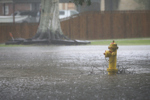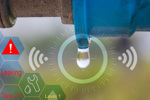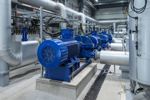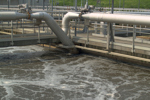ARTICLES BY EMILY NEWTON
-
3 Nanotech Breakthroughs Revolutionizing Water Purification Worldwide10/30/2025From graphene membranes to metal nanoparticles, nanotechnology is reshaping water purification with faster, cleaner, and more energy-efficient solutions.
-
3D Printing Concrete Reshapes Water Infrastructure, Layer By Layer7/30/2025While three-dimensional printing has existed for some time, its impact on the water and wastewater industry has been almost negligible. Widespread adoption has dragged, potentially due to uncertainty. One recent development in 3D printing concrete is poised to change that.
-
Why IoT Is Crucial For Modern Water Treatment Automation4/24/2025Professionals interested in smart water treatment often explore how Internet of Things (IoT) sensors can get them closer to their goals. These devices track data in real time, revealing how leaders should optimize their processes. What are some potential benefits associated with applying IoT technologies?
-
Challenges In Repairing Leaking Pipes In Aging Urban Water Systems3/14/2025
Worldwide, nations are tackling critical infrastructure. Many of these systems are reaching the end of their lifecycles, leading to pollution, water waste, and inefficiencies. Water and wastewater employees carry a monumental burden in retrofitting and upgrading these mechanisms at such immense scales. Fortunately, solutions are available to expedite the work and better citizens' lives.
-
2025 Brings Focus On Critical Water Infrastructure Modernization12/13/2024
Local municipalities' water workers will be working hard in 2025 to install infrastructure upgrades. Modernization is long overdue, and the consequence of holding onto the old is stalling the implementation of the new. How will cities and utility companies collaborate to ensure the coming year breathes new life into water infrastructure?
-
How To Improve Data Accuracy For Better Decision-Making In Water Utilities11/11/2024Water utility professionals are in a constant battle to preserve quality while integrating new digital and tech strategies to improve facilities. Collecting, organizing, and leveraging data is one of the most trending operational shifts in modern water management. However, inaccuracies riddle the sector.
-
Strategies For Enhancing pH Control Systems In Wastewater Treatment9/23/2024Managing pH in wastewater treatment is a crucial undertaking for water utilities. Solid contaminants often receive more attention, as they're more obvious threats, but sub-optimal pH levels can be dangerous, too.
-
Is Your Current Excavator Up To The Challenge Of Modern Water Projects?9/6/2024Digging may seem rudimentary, but there are important factors to consider for improving costs and outcomes when renewing pipelines and other water infrastructure.
-
Fortify Your Stormwater Systems For Hurricanes And Heavy Rain8/21/2024
With many areas experiencing stronger and longer-lasting storms that bring significant rainfall, water infrastructure professionals must anticipate stormwater inundation events. How do hurricanes impact water systems, and what should people proactively do to mitigate the adverse effects?
-
Why Reducing Inflow And Infiltration Is Crucial For Wastewater Health6/27/2024
Inflow and infiltration (I&I) is an overlooked aspect of wastewater management. It is time the industry gives it the attention it deserves.
-
Enhancing Water Infrastructure Resilience Against Seismic Activity4/17/2024Water and wastewater infrastructure is the backbone of communities, ensuring access to clean water and the safe treatment of waste critical for public health and environmental sustainability. However, seismic activity presents a formidable challenge to these systems. It risks widespread disruption, contamination, and service outages that can have immediate and long-term effects on a community's well-being and capabilities.
-
How Much Energy Can Hydro Turbines In Water Pipes Generate?3/7/2024
As interest grows, real-world examples of energy generated within water pipes is confirming the viability of this innovative practice.
-
6 Reasons Modern Water Treatment Relies On Smart Sensors12/19/2023
Smart sensors for water treatment facilities are revolutionizing wastewater processing and clarification, leading to some amazing benefits. Modern water treatment has become a high-tech field as many facilities have begun adopting connected IoT sensors to monitor their equipment and water quality. Learn more about the benefits of these smart sensors and why they are an integral part of today's water treatment industry.
-
What Benefits Do Variable Frequency Drives Offer For Pump Control?10/10/2023
People working with water infrastructure or handling other industrial needs may choose variable frequency drives (VFDs) for better pump control options. This approach relies on a component that alters the frequency and voltage received by the pump motor, thereby changing its speed and torque. Here are some of the benefits of VFDs.
-
Amazing And Reliable Insights Gathered From Dissolved Oxygen Sensors8/11/2023
Dissolved oxygen sensor monitoring is critical to making wastewater plants run smoothly and within regulations. Here are some fascinating things people can learn by looking at data from these devices.
















